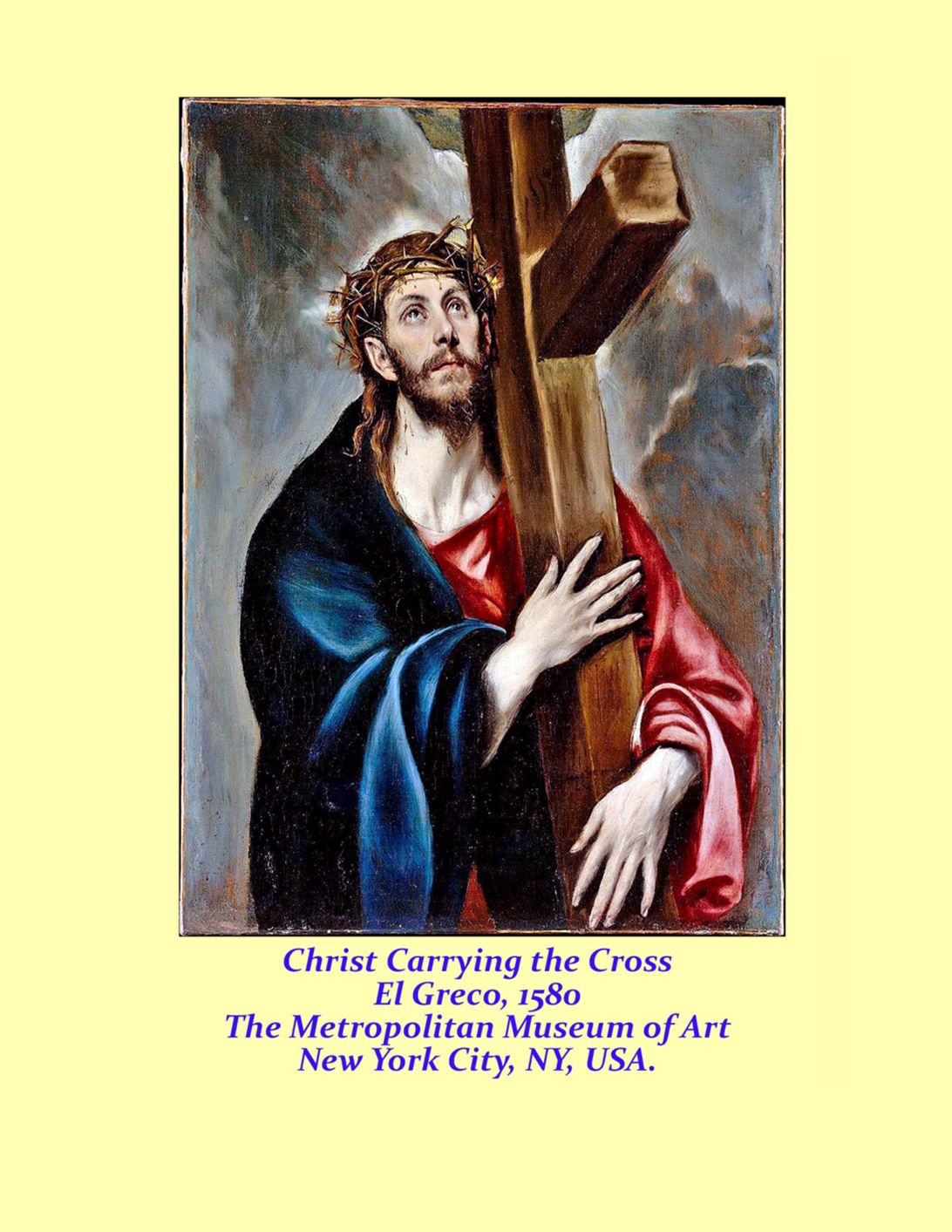
The Samaritan Woman, St. Paul’s Icons.
The woman said to him, “I know that the Messiah is coming, the one called the Christ; when he comes, he will tell us everything.” Jesus said to her, “I am he, the one speaking with you.” John 4:25-26.
Click here to read today’s Sunday Mass Readings.
Click on words highlighted in red for further information.
Today’s gospel occurs fairly closely to the beginning of John’s gospel. and for some reason Jesus reveals his identity to (a) a woman, (b) a Samaritan, whom Jews looked down on as, basically, heretics, and (c) a social inferior. She was the first one to be told he was the Messiah, so this is a significant event on many levels. One might well wonder what was happening on that day. We are told it was “about noon”, which is to say it was approaching the hottest time of the day. Water is heavy, yet this woman was there to haul the water up, on her own, and carry it back to her village and her home. Strange. Anyone else would have done that first thing in the morning when it was cooler, to begin the day. So perhaps she had been ostracized for some reason. She was also someone who could hold her own, even to a male stranger, so clearly she could take care of herself. Jesus, of course, noted all that and yet continued to converse with her (which, socially speaking, was a no-no on several levels for a Jewish man). I can’t help thinking that he really liked this woman who thought for herself, acted as she felt was right and was generally, well, not submitting to the usual role as a woman back then. So attractive was she that over the years, especially in the Orthodox world, she was given a name, Photini (“enlightened one”), became a follower of Jesus, converted her five sisters and two sons (!) as well as many others, and preached in Carthage and Rome before being martyred under the Emperor Nero, none of which is written down anywhere. So there! But one thing is fairly certain; Jesus and she met at Jacob’s Well, which still exists:

Jacob’s Well, Greek Orthodox Church, Balata, Palestinian Authority.
She was also not shaken by Jesus knowing that she had had five husbands, and the man she was currently living with was not one of them! Now note – Jesus continued to talk with her and did not walk away disgusted. And she was not put off in the least by all this, simply stating that “Sir, I can see that you are a prophet”, and then embarking on a defense of the Samaritan tradition, noting that the Samaritans believed the Temple was on Mount Gerizim, not in Jerusalem at all! Jesus then stated his version of the truth, so they were, in effect, having a theological argument about fundamental truths! It was at that point that he revealed his identity to her, the first person in the Christian Scripture to hear it. She left him then, and rushed into the village to call everyone out to meet the Messiah. She was, in effect, now a missionary for the Lord… It was at that moment also that his disciples returned from the village having bought some provisions, to be astounded at the sight they beheld, several taboos being violated in one go! And not only that: the woman returned with many people from the village who also then become convinced that Jesus was, indeed, the Messiah. She was an evangelist! In fact, she is an excellent example of what the Lord also expects of us! Do we talk of knowing the Lord, the one who can guide us day by day (remembering St. Richard once again), the one who can guide us in every decision we make? That well may be the message we can take from today’s gospel. The opposite can be seen in today’s first reading. The people wandering in the desert under Moses expressed lack of faith in the Lord, complaining about their lot and doubting if they would ever get out of their mess. God heard them, that’s for sure, but was not pleased with their lack of faith. Massah and Meribah were forever linked to wavering faith and God’s resulting anger. It is something we can avoid, no matter the circumstances we may be in. Our faith must be rock solid amid the most challenging circumstances; after all, what else is there to hang on to if all else seems to be collapsing around us? Our Samaritan woman, who seems to have little going for her, given that she was being shunned by her neighbors, yet was still open to to the Good News from the lips of the Savior. We don’t know, but the local tradition says she reformed, and became a follower of the Lord. So there is always hope, and there will always be that. And in addition, just like the woman, we should never be afraid of questioning God, being sure of our faith which should always be able to stand up to scrutiny. God is always there beside us, always open to question and ready to reply – in God’s own way! Hence we should always be aware on many levels for the divine reply. It will be there – somewhere!
 The Servant’s Chronicles’s Post
The Servant’s Chronicles’s Post
PLEASE FORWARD THIS THOUGHT TO ONE YOU THINK WOULD APPRECIATE IT. THANK YOU.
Reflections on next Sunday’s Mass Readings will be posted on Wednesday.
Please send your reactions to: RogerJohn@aol.com
©SundayMassReadings.com






















